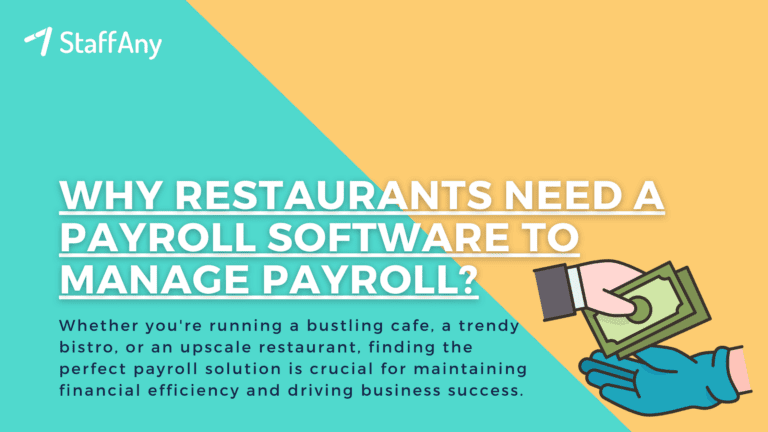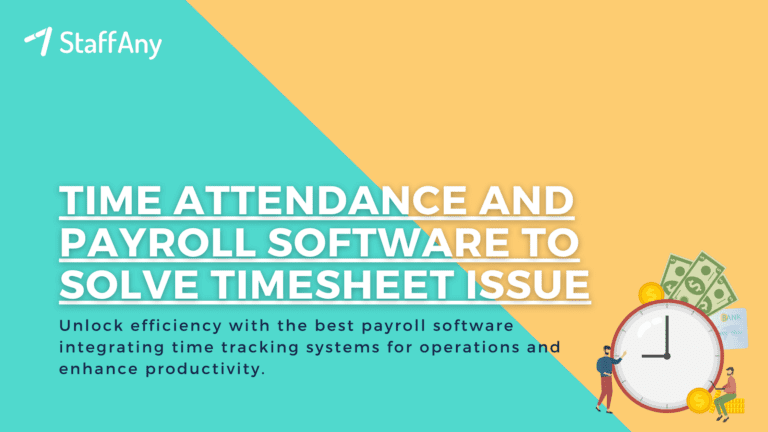Malaysia is a melting pot of cultures, and its food reflects its diverse heritage. The food and beverage (F&B) industry in Malaysia has always been an integral part of the country’s economy, with the industry being a significant contributor to the Gross Domestic Product (GDP). The industry has experienced rapid growth over the years, driven by the country’s increasing population, rising disposable incomes, and thriving tourism industry.
In this article, we will look at the current facts and trends in the F&B industry in Malaysia, as well as what are the top challenges faced by the industry and several tips to help you succeed. But before that, let’s take a look at the overview of Malaysia’s F&B industry!
An Overview of the F&B Industry in Malaysia
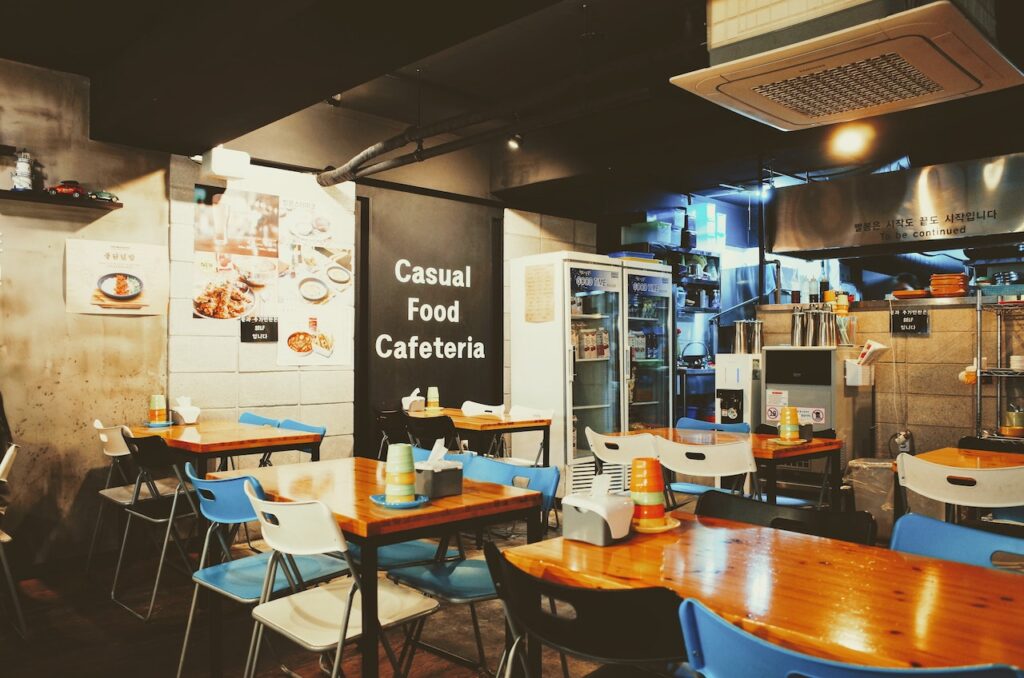
The Malaysian F&B industry comprises various segments such as restaurants, cafes, food courts, hawker centres, catering services, and food manufacturing. The industry is highly competitive and diverse, with a wide range of cuisines available, including traditional Malaysian dishes like Chicken Rice Shop or chain in Hainanese-style chicken rice, as well as Chinese, Indian, Indonesian, and Western cuisine. The industry has seen rapid growth over the years, with an increase in the number of food outlets, food festivals, and food-related events.
According to the data by Statista, in 2023, the Malaysian F&B industry recorded a revenue of RM 228.66 billion, and it is expected to grow at a compound annual growth rate (CAGR) of 7.95% from 2023 to 2027. The industry is also a significant employer, providing jobs to over a million Malaysians, making it an essential source of income for many.
Read more: Exploring 15 Different Types of F&B Services: An Overview
Food and Beverage Industry Trends in Malaysia
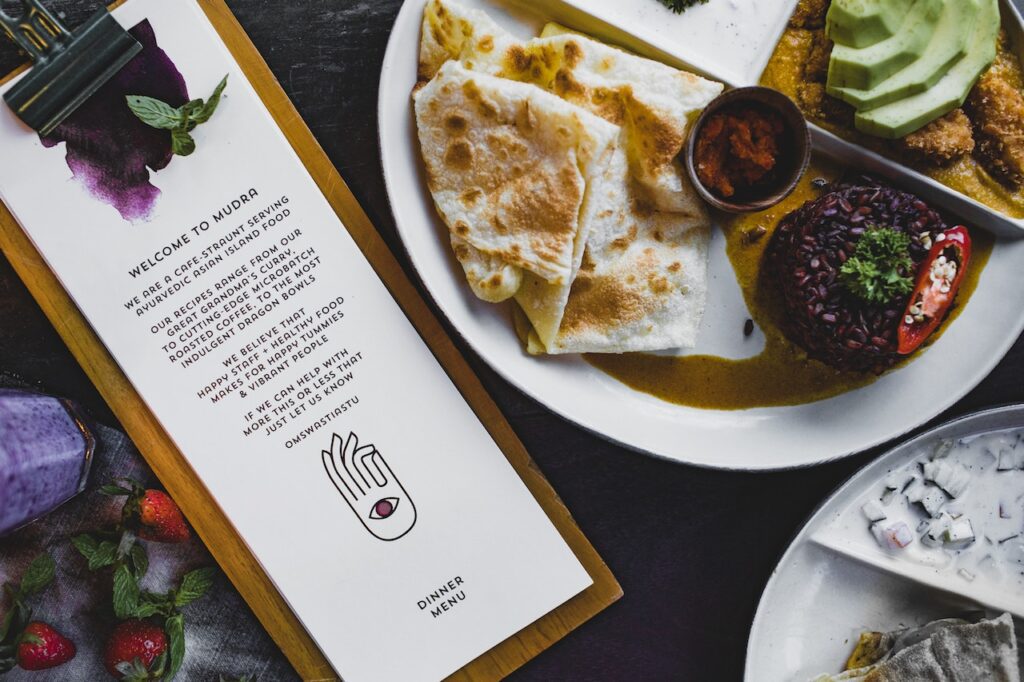
The Food industry in Malaysia has seen various trends over the years. Here are some of the current trends shaping the industry:
1. Health and Wellness
With a growing awareness of health and wellness, there has been an increase in demand for healthier food options. Consumers are now looking for food that is not only delicious but also nutritious. This trend has led to an increase in demand for plant-based and organic food options. Many restaurants and cafes have started offering healthy food options to cater to this growing demand.
2. Digitalisation
The pandemic has accelerated the adoption of digital technologies in the F&B industry. Many food outlets have shifted their focus to online orders and deliveries to keep their business running. Consumers are now using various food delivery apps to order food, making it convenient for them to get their favourite meals delivered to their doorstep.
3. Sustainability
The F&B industry is one of the most significant contributors to food waste globally. As a result, many restaurants and cafes are adopting sustainable practices to reduce their carbon footprint. Restaurants are now sourcing ingredients locally to reduce food miles, and many are also adopting eco-friendly packaging.
Read more: How to Train Restaurant Staff to Improve Efficiency
4. Diverse Culinary Experiences
Malaysians have a rich culinary heritage, and there was a growing trend toward embracing diverse and international flavors. F&B establishments were experimenting with fusion cuisines and introducing a variety of global dishes to cater to the increasingly adventurous tastes of consumers.
5. Plant-Based and Alternative Proteins
The interest in plant-based diets and alternative protein sources was gaining momentum. Many F&B businesses were incorporating plant-based menu items, and there was an increase in the availability of plant-based protein products in the market.
6. Customization and Personalization
Consumers were seeking more personalized and customizable food and beverage experiences. This trend was reflected in made-to-order options, customizable menus, and interactive dining experiences that allowed customers to tailor their meals according to their preferences.
7. Food Safety and Transparency
Concerns about food safety and a desire for transparency in the food supply chain were influencing consumer choices. F&B businesses were focusing on providing clear information about the sourcing of ingredients, food preparation processes, and adhering to strict hygiene standards.
8. Collaborations and Partnerships
Collaborations between F&B establishments, as well as partnerships with food delivery platforms, were becoming more common. This trend allowed businesses to expand their reach, offer diverse menu options, and enhance the overall customer experience.
9. Virtual Kitchens and Cloud Kitchens
The concept of virtual kitchens, also known as cloud kitchens, was emerging. These are kitchens that operate solely for fulfilling online orders, without a physical storefront. This model was gaining popularity due to its cost-effectiveness and ability to meet the demands of the growing food delivery market.
These trends showcase the dynamic nature of Malaysia’s F&B industry and the ongoing efforts to meet the evolving preferences of consumers. It’s advisable to check for the latest industry reports and updates to stay informed about the current state of the F&B landscape in Malaysia.
Read more: 10 Types of Food and Beverage Operations
Top Challenges Faced by the F&B Industry in Malaysia
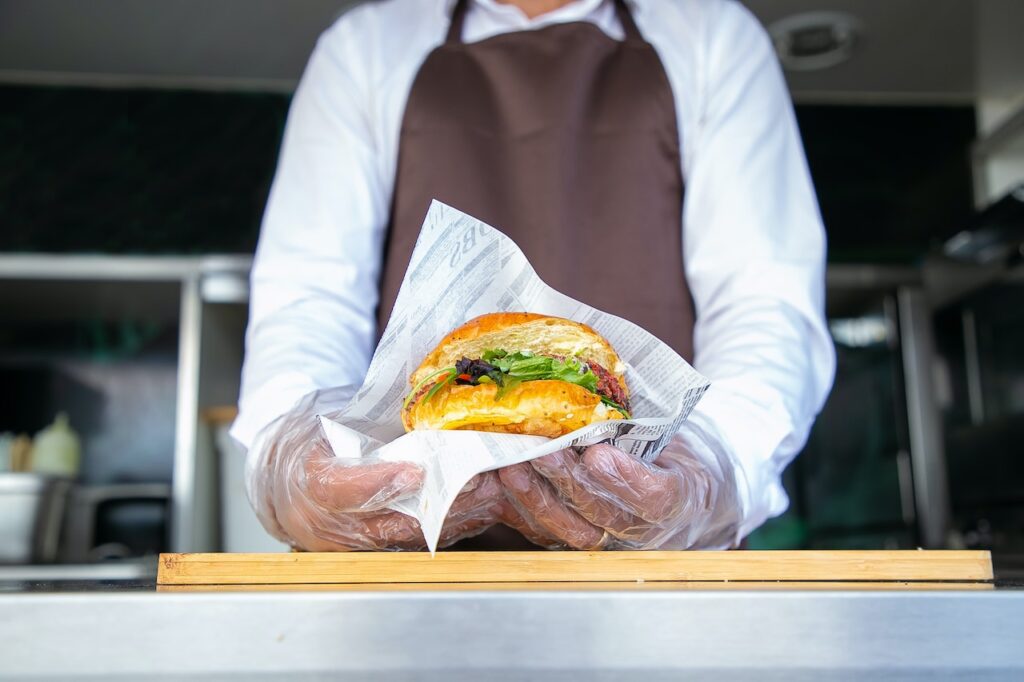
The F&B industry in Malaysia faces various challenges that hinder its growth. Here are some of the top challenges faced by the industry:
1. Labour Shortage
The F&B industry in Malaysia is heavily reliant on foreign labour. However, the government has introduced strict policies to reduce the number of foreign workers in the country. This has led to a shortage of skilled labour in the industry, making it challenging to find and retain talent.
2. Rising Costs
The cost of food ingredients, rent, and utilities has been increasing over the years, making it challenging for food outlets to keep their prices competitive. Many restaurants have been forced to increase their prices to maintain profitability, which could potentially drive away customers.
3. Competition
The F&B industry in Malaysia is highly competitive, with many players vying for a share of the market. New restaurants and cafes are opening up every day, making it difficult for existing players to retain their market share.
Read more: The Importance of Time Management for Restaurants, Cafes, and Other F&B Businesses
Succeeding in the Malaysian Food and Beverage Industry

The F&B industry in Malaysia presents many opportunities for growth and success. Here are some tips for succeeding in the industry:
1. Adapt to Changing Consumer Preferences
As seen with the current trends in the industry, consumer preferences are continually changing. To succeed in the F&B industry, it is essential to keep up with these changing preferences and offer what consumers want. This could mean offering healthier food options, adopting sustainable practices, or providing a digital ordering and delivery service.
2. Embrace Innovation
Innovation is critical in the F&B industry, and businesses that fail to innovate risk being left behind. Embracing new technologies and adopting new practices can help businesses stay competitive and meet changing consumer demands. For instance, adopting new cooking techniques or sourcing unique ingredients could help set a restaurant or cafe apart from its competitors.
Read more: A Comprehensive Guide on Shift Work Schedule Management in the F&B Industry
3. Focus on Quality
In a highly competitive industry like F&B, it is crucial to focus on quality. Businesses that consistently provide high-quality food and service are more likely to attract and retain customers. Investing in quality ingredients and hiring skilled staff is essential to maintain high standards.
4. Build a Strong Brand
Building a strong brand is crucial in the F&B industry. A strong brand identity can help differentiate a business from its competitors and attract loyal customers. Businesses can achieve this by developing a unique brand personality, investing in marketing and advertising, and creating a memorable customer experience.
5. Stay Compliant with Regulations
The F&B industry is heavily regulated, and businesses must comply with various health and safety regulations. Failure to comply with these regulations could lead to fines or even the closure of the business. It is essential to stay up-to-date with the latest regulations and ensure that the business is operating within the law.
Read more: Developing an Effective Restaurant Management Plan
Unleash your Team’s Potential with Connected Workforce Software
Looking to streamline your restaurant or cafe’s operations and improve staff productivity? Try to implement Connected Workforce Software into your establishment. Gain clarity and control over work processes with complete visibility.
Furthermore, check out StaffAny’s online timesheet tracker! Our solution allows you to track employee time and attendance accurately, making payroll processing and scheduling a breeze.
With real-time updates and data, you can make informed decisions to optimise your workforce and reduce labour costs. Try StaffAny’s online timesheet tracker today and take your F&B business to the next level!




